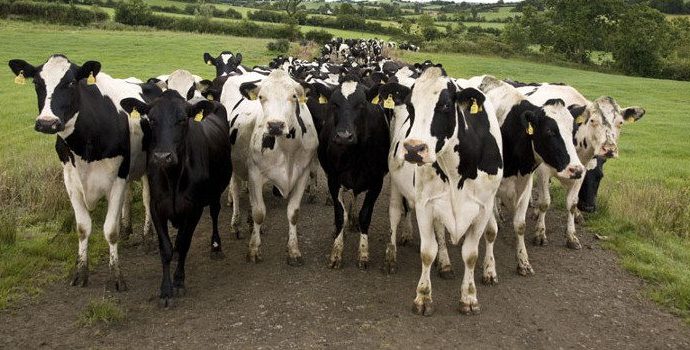Broadcasting Authority of Ireland Bid to Restrict Tv Cheese Advertising Ill-advised and Simplistic

IFA National Dairy Committee Chairman Kevin Kiersey today (Wed) said that proposals by the Broadcasting Authority of Ireland (BAI) to restrict television advertising of cheese to children are misleading and confusing for parents who are trying to provide a balanced healthy diet for their children.
Kevin Kiersey said, “On page 27 of its Consultation Document, the BAI suggests that Cheddar cheese is less healthy for children than diet cola. This approach lacks any credibility. If we are serious about addressing poor diets among children and the incidence of obesity, then the message has to be about moderate portion sizes, overall balance and variety in the diet and the other health issues caused by certain foods – e.g. tooth damage by acidic diet sodas.”
“In Food Harvest 2020, the Government set out a 50% expansion target for the dairy industry, which forms a strong part of its overall policy to promote economic recovery. In this context, it is ill-advised and extremely counterproductive for the BAI to suggest that the marketing of healthy and nutritious dairy products should be restricted,” he said.
“Cheese and dairy products make a crucial contribution to a healthy diet for children and teenagers, many of whom have been shown to have an inadequate intake of calcium. A 28 gram portion of cheddar cheese contributes 207mg of calcium which equates to 26% of the RDA for 1-10 year olds, and 17% of the RDA for 11 to 17 year olds. Many other valuable nutrients are also available from cheese, such as vitamin A, riboflavin, vitamin B12, phosphorus and zinc among others,” Mr Kiersey said.
“The National Dairy Council have also shown that there is no relationship between the consumption of cheese by under-18s – relatively unchanged in the last 20 years – and the presence of overweight and obesity in that group – which has increased very substantially over the same period,” he added.
“I am alarmed at yet another simplistic approach in regulating food marketing which encourages the public to look at foods as good or bad rather than encouraging a varied, healthy and balanced diet for children and teenagers,” he said.
“I believe the BAI must go back to the drawing board. Their proposals will demonise some healthy food<i>s </i>such as cheese, damage the prospects of one of our most promising economic sectors by restricting its marketing options, but will do nothing to improve the diets of children and teenagers,” he concluded.




